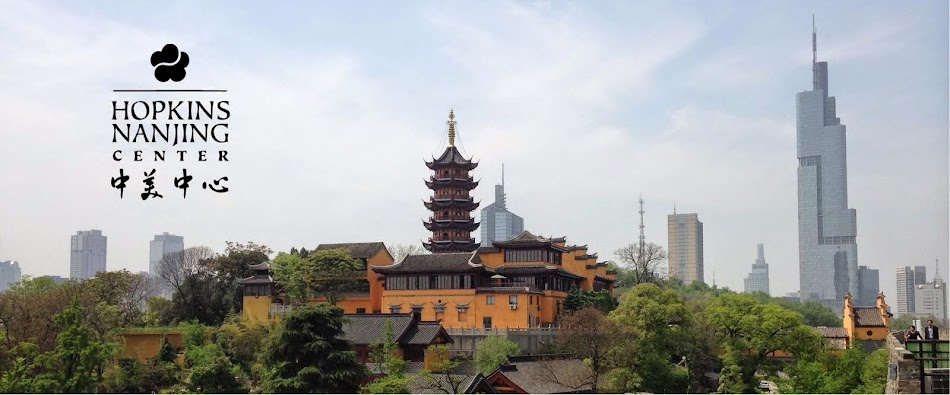On June 17th, 2022, on the eve of the Hopkins-Nanjing Center’s 35th Anniversary celebrations, the graduating class of 2022 was invited to participate in a commencement ceremony delivered virtually.
The opening remarks of the 2022 commencement ceremony were delivered by Co-Director Cong Cong on the Chinese side, and Co-Director Adam Webb on the US side. Both Co-Directors emphasized the resilience of students despite the ongoing difficulties of virtual learning and took time to express gratitude for students and staff on both sides.
Following opening remarks, it was time for the keynote speakers. This year’s speakers – James Heller and Huang Haifeng – were roommates during their time at the Hopkins-Nanjing Center in 1992, and have remained close friends since graduating. Both Heller and Huang completed the Certificate program at the HNC. James Heller currently serves as the US Consulate General in Shanghai, while Dr. Huang has recently been promoted as board member of the PRME Steering Committee of the United Nations (UN) Global Compact.
Speaking first, James Heller recalled the monumental nature of his experience in China by telling us a story from January 1992. While eating in a small local restaurant in Nanjing, he still remembers the evening news broadcasting Deng XiaoPing’s embarkment on what would become his famous Southern Tour.
Recalling his Nanjing experience and the fruitful career that followed, James had three pieces of advice for graduating students:
1) Keep in touch with your classmates – you never know where or when you will encounter them in other walks of life, and you can never have too many useful connections!
Following James Heller, Dr. Huang addressed students and offered his own advice. To him, the HNC provides students with “three keys,” or functions, which they must learn to utilize correctly in their future careers.
First, a guiding function: through an interdisciplinary, multi-lingual experience, the program provides students with the opportunity to open communications with an entire new culture, build mutual trust, share interesting stories, and work together to solve problems peacefully.
Second, a “mirror” function: According to Dr. Huang, dialogue with others is a mirror to yourself, and to the ways in which other people interpret your actions. By bringing international and Chinese cohorts of students together, the HNC holds up a mirror to each cohort on the way each side views the other. This highlights the importance of treating the other side in the way you want to be treated, allows you to exchange and modify different thought processes, encourages understanding of new perspectives, and fosters tolerance.
Finally, but certainly not least, is the bridge function: the Hopkins-Nanjing Center is a bridge between US and Chinese cultures, and one that will remain open for you to use long after graduation. Dr. Huang recalled his own experience during his first visit to New York. After his bag and all his things were stolen, he called the DC office of the Hopkins-Nanjing Center, where staff members and his former classmates Scott and Lucy helped him sort out his situation.
Following the guest speakers, the Dean of Johns Hopkins SAIS Jim Steinberg and the Vice President of Nanjing University Wang Zhenlin warmly congratulated students on their graduation. Both Dean Steinberg and Dr. Wang reiterated the importance of the US-China bilateral relationship for the rest of the world, commended the adaptability and forward-looking spirit of students, and promised their continued support to the Hopkins-Nanjing Center.
Before students received their diplomas, awards, and individual recognition, graduates Austin Frenes and Liu Yaxiang addressed their classmates with speeches in their target languages. Austin reflected on the accomplishments and language proficiency that both himself and his other Chinese and international classmates gained throughout their time of study, thanking both teachers and students for their patience. He also highlighted the creative ways in which cohorts in the several years since the pandemic have adapted to overcome challenges of communication, and the inability to meet their classmates. Liu Yaxiang also reflected on her two years as a law student, and identified the HNC as a community of togetherness that is growing stronger day by day, despite the recent challenges that students have been presented with.
In her closing remarks, she articulated something that everyone feels when we become part of the HNC community:
Once we enter the HNC, regardless of where we may end up in life, we are HNC-ers forever.
Written by Kalina Pateva








